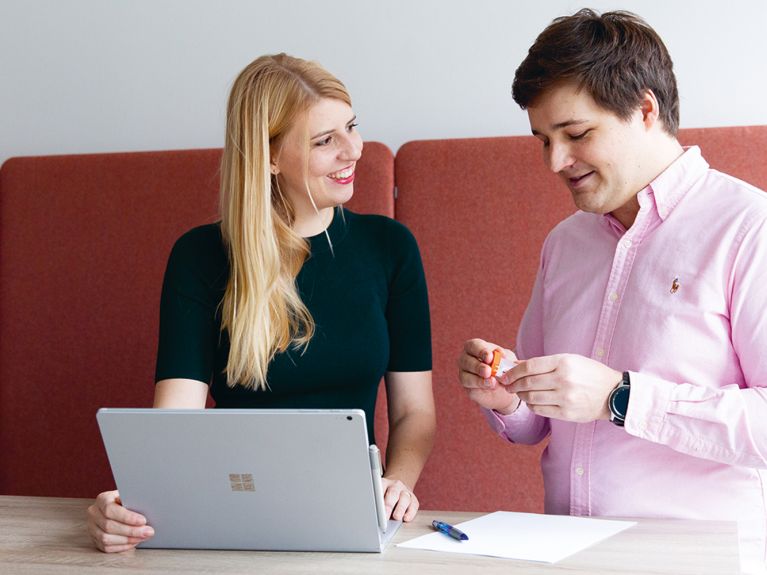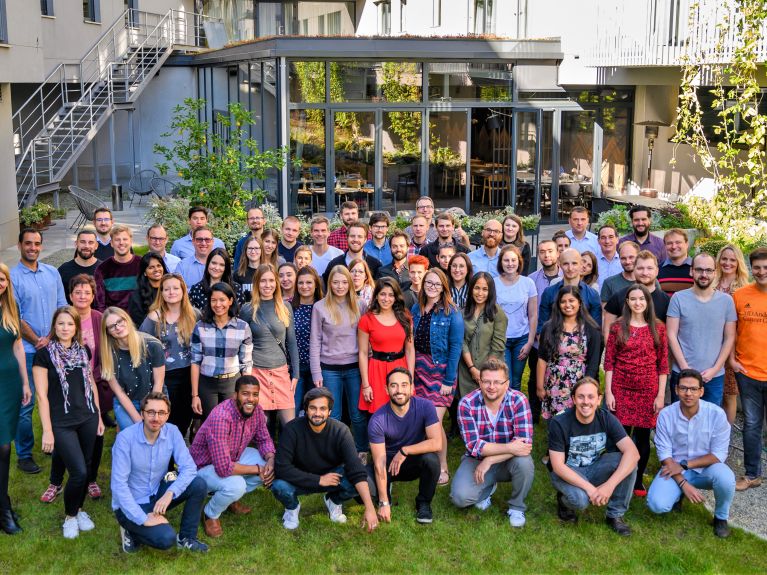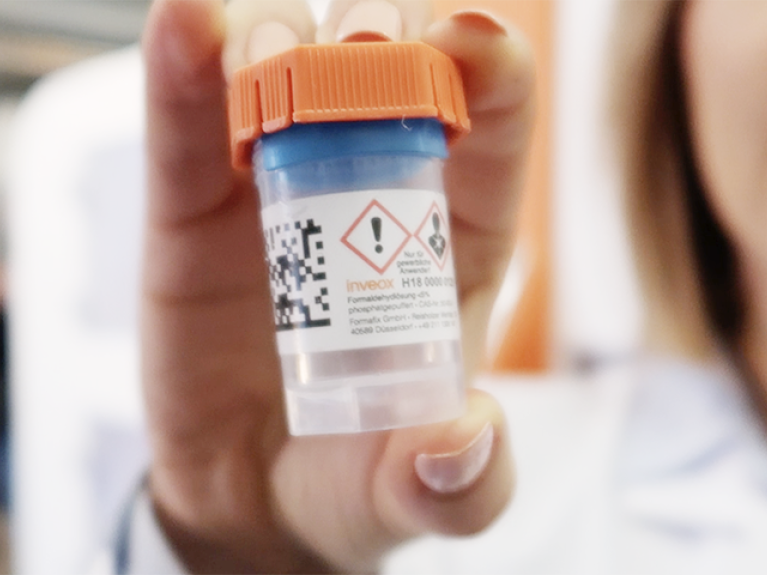The pandemic boosts development
The coronavirus has had a significant impact on young enterprises. Business founders from Europe explain how they responded to the pandemic.

Wonder: interactive exchange
Most couples want to make their wedding an unforgettable event. Many seek professional wedding photographers. But where do you find them? Stephane Roux decided to set up the Marrily online agency to make the search easier. That was in January 2020. Then came the corona pandemic. “The market collapsed overnight,” recalls Roux. Marrily is now offline. In its place Stephane Roux joined forces with Leonard Witteler and Pascal Steck to realise Wonder, a videoconferencing platform that is actually based on an old coding project from Leonard Witteler’s time at university.
Dieses YouTube-Video kann in einem neuen Tab abgespielt werden
YouTube öffnenThird party content
We use YouTube to embed content that may collect data about your activity. Please review the details and accept the service to see this content.
Open consent formWonder allows all conference participants to view a two-dimensional map that they can move around on freely with their profiles. Individuals who are on the map at the same time can speak or write to one another or form into groups – in a similar way to they would at a real event. “Communication on Wonder is more interactive than during a conventional videoconference where one person speaks and everybody else listens,” explains Roux, who studied politics and economics at prestigious universities in London and Oxford.
In February 2021 the Berlin-based startup claimed it already had 700,000 visitors worldwide. “We were practically overrun by users,” says Roux. They also include companies like Johnson & Johnson, Deloitte and Siemens. The software is still free of charge. However, Wonder has to earn money, and the first payment models will therefore be introduced from mid-2021.
The company aims to grow: 30 employees currently work at Wonder; up to 60 are planned. In 2020 the founders collected just under eleven million euros from investors – a large sum for a company that was only one year old. It remains unclear whether the demand for videoconferencing solutions will hold up after the pandemic and how established providers like Google Meet, Microsoft Teams and Zoom will develop their software in future.

Inveox: second source of income during the pandemic
Less manual handling, fewer errors: Inveox is a business startup that digitises and automates the handling of cancer tissue samples. Normally containers with the removed tissues are labelled by hand in doctors’ practices and sent to laboratories for further examination where they are again manually repackaged. It’s an error-prone system. “Samples are mixed up or get lost, for example,” explains Dominik Sievert, who founded the startup with his wife Maria in 2017 and has meanwhile also set up a subsidiary in Poland.

The Inveox system consists of an intelligent sample holder, an online platform for data transmission between the doctor and the laboratory and a machine for automatically handling incoming samples. The startup sells these products to private labs, university hospitals and doctors’ practices. Suddenly, however, analogue ways of presenting the digital tools disappeared: “Since the corona pandemic most labs have not been open to external visitors,” says Sievert.
That is why one year after the start of the pandemic Inveox is selling face coverings and coronavirus PCR, rapid and self tests to gain a second source of income. Its customers include clinics, laboratories, healthcare centres and care homes in Europe and the USA. The company had already established appropriate supply contacts before the pandemic and was quickly able to fall back on them.
“The year 2020 was a rollercoaster,” says business founder Sievert looking back. Nevertheless, they did not need to reduce the working hours of the roughly 120 employees at their main site in Munich and in Kraków. He is confident that the coronavirus will accelerate the digitalisation of medical technology – and that the core business of Inveox will benefit from this after the pandemic. It has already received support from the European Union. The startup received 50,000 euros of funding in 2017 under the auspices of the HEADSTART programme.

Fairphone: focusing on fair raw materials
Founded in 2013 in the Netherlands, the Fairphone company wants to position itself as the environmentally friendly and socially responsible alternative to Apple, Samsung and co. Its pledge: a significant proportion of the material used is recycled plastic and the supply chains of the individual smartphone components have been completely monitored. This is not an easy task, because mobile phones contain numerous raw materials, such as cobalt and zinc, extracted from many different mines. In any event, according to its 2019 Impact Report, some 30% of the focus materials in the Fairphone 3, such as gold, were procured by fair means. The company aims to increase this proportion to 70% in future.

Specific modules, such as the camera or battery, can be individually removed, repaired and replaced. This makes the smartphones usable for a significantly longer period – also after the guarantee has expired. According to information published by the company, roughly 12% of customers make use of this feature.
Dieses YouTube-Video kann in einem neuen Tab abgespielt werden
YouTube öffnenThird party content
We use YouTube to embed content that may collect data about your activity. Please review the details and accept the service to see this content.
Open consent formGermany is the largest market for Fairphone smartphones. Although many mobile phone shops had to close following the lockdown in March 2020, Fairphone says it was able to more than double its European smartphone sales in 2020 to 95,000 units.
A recent development could also give the Dutch firm another boost: Germany recently passed supply chain legislation and a Europe-wide law is expected to follow soon. This could have massive consequences for the IT sector and focus special attention on the Fairphone business model.





